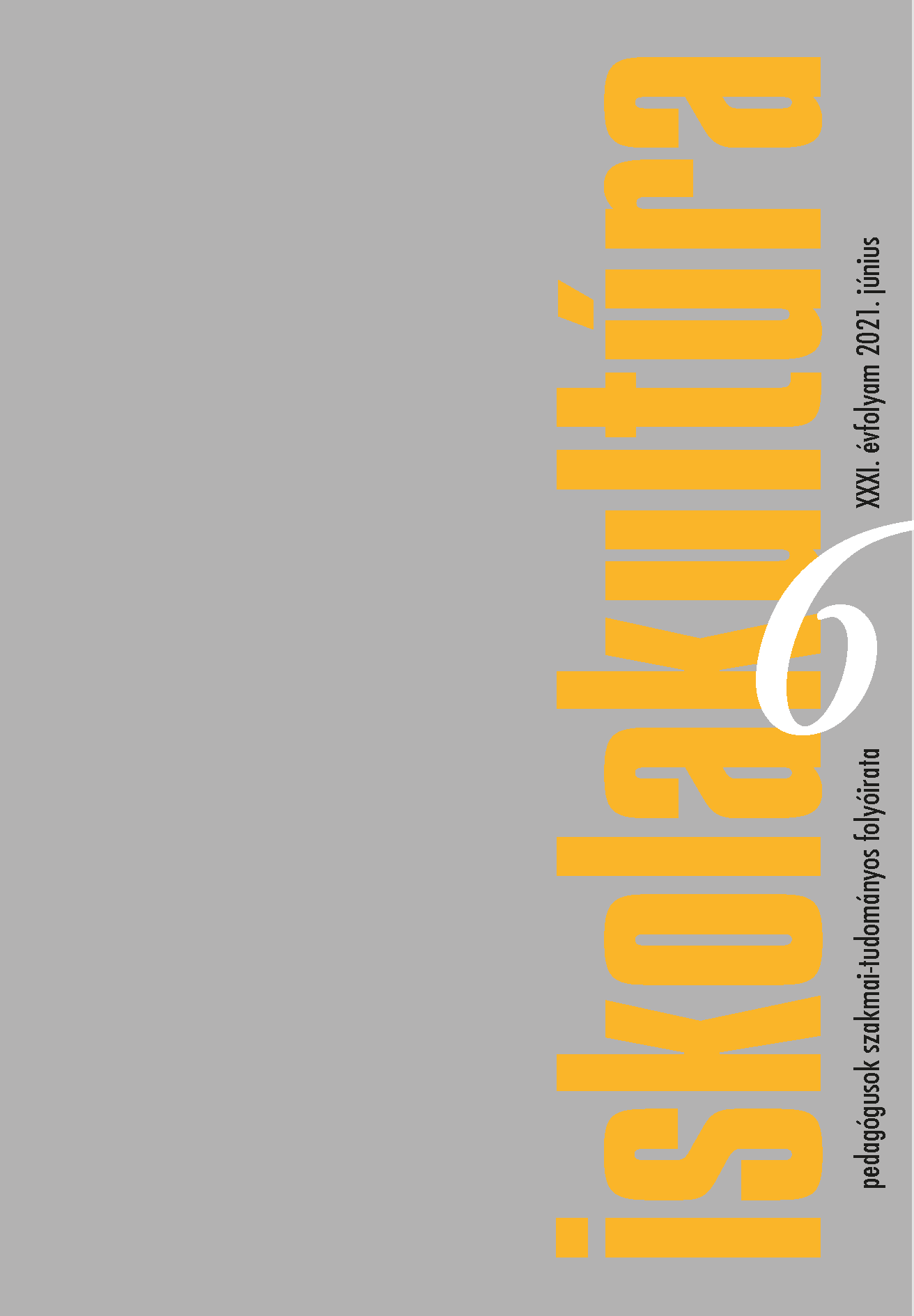Experiences of quarantine education inside and outside segregated areas - based on 18 student and parent focus group discussions
Main Article Content
Abstract
The biggest recent challenge for the Hungarian public education system was the introduction of online education in March 2020.It has also provided a lot of lessons: how to reorganize the teaching / learning process in digital space, how teachers’, parents’ and students’ roles are transformed; whether communication processes between the actors of public education has changed, and what characterizes the “school” media use in the changed circumstances. In the mean time we also sought answers to these questions when we conducted empirical research, which aligned with international research of standards, among children aged 13-17 about online learning and Internet using habits of.
Based on the results of focus group interviews, the present study introduces and interprets new media usage patterns typical of three months of online education, different parenting, student and teacher experiences, and typical socio-culturally defined problem-solving strategies.
Downloads
Article Details
References
David Buckingham (2007): Media education goes digital: an introduction, Learning, Media and Technology, 32:2, 111-119
Buckingham, David (2019): Rethinking digital literacy: Media education in the age of digital capitalism. Digital Education Review 2020
Cziboly Ádám szerk. (2017): Színházi nevelési és színházpedagógiai kézikönyv. Budapest: InSite Drama
Illés Klára, Eck Júlia, Kaposi József, Trencsényi László (szerk.): Dráma – pedagógia – színház – nevelés. Szöveggyűjtemény középhaladóknak. Budapest: Oktatáskutató és Fejlesztő Intézet
Jonothan Neelands (1994): Dráma a tanulás szolgálatában. Ford. Szauder Erik. Budapest: Magyar Drámapedagógiai Társaság és Marczibányi Téri Művelődési Központ
Lannert Judit, Németh Szilvia és Szécsi Judit (2017): Kábítószerhasználat a szegregátumokban élő
általános iskolások körében. Kutatási zárójelentés. Kézirat, T-Tudok Zrt., Budapest. (kutatásmódszertani előzmény) https://www.t-tudok.hu/files/2/vezetoiosszefoglalodrog_korr.pdf
Livingstone, Sonia and Helsper, Ellen (2008): Parental mediation and children’s Internet use. Journal of broadcasting & electronic media, 52 (4). pp. 581-599.
Livingstone, Sonia and Mascheroni, Giovanna and Staksrud, Elisabeth (2018): European research on children’s internet use: assessing the past and anticipating the future. New Media and Society, 20 (3). pp. 1103-1122.
Mizuko Ito – Horst, Heather – Bittanti. Matteo – boyd, danah – Herr-Stephenson, Becky – Lange, Patricia G. – Pascoe, C.J. – Robinson, Laura (2008): Living and Learning with New Media: Summary of Findings from the Digital Youth Project. MacArthur Foundation.
OECD (2020): School education during COVID-19: Were teachers and students ready? Country Note: Hungary. http://www.oecd.org/education/Hungary-coronavirus-education-country-note.pdf
OECD CERI (2019): Fostering students' creativity and critical thinking: what it means in school.
https://doi.org/10.1787/20769679

